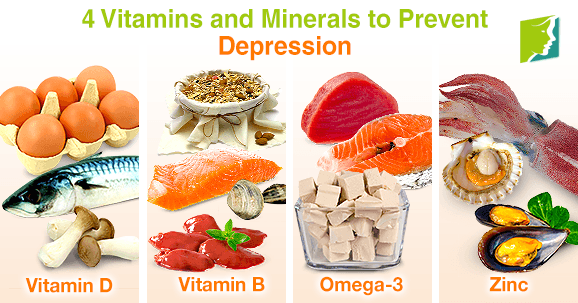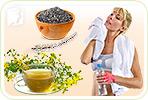Depression can be a difficult condition to live with, and it affects many people: it is estimated that one in 10 American adults will suffer from an episode of depression at some point. There are many treatment options out there, but it is best to be aware of what vitamins can help alleviate it, which can be easily added into your diet as supplements.
What Is Depression?
Although all of us feel sad at some point in our lives, but for people with depression, these feelings become chronic and do not subside, ultimately interfering with everyday life. The symptoms of depression can creep up gradually and unnoticed, resulting in behavior and personality changes over time. Symptoms include loss of confidence and self-esteem, a feeling of numbness, and an inability to enjoy favorite activities.
Depression tends to affect more women than men, possibly owing to the higher amount hormonal fluctuations women tend to experience compared to their male counterparts. There are many causes of depression, and they often work together to produce low moods. A few examples of these include personality, stressful life events, illness, and diet. However, there are some vitamins that, should they be included in your diet, could result in a lower chance of developing the illness.
A diet low in certain vitamins, minerals, and fats can provide the perfect conditions for depression to develop. Therefore, a diet rich in the following substances should prevent the disorder to some degree and lead to an overall sense of well-being.
Vitamin D
Some studies have suggested that an increased intake of vitamin D results in a significantly lower risk of depressive symptoms, although research remains limited. It is true that lower levels of the substance have been found in people with depression, but whether this is a cause or an effect of the condition is debatable. To get your daily dose, eat a diet rich in fish, eggs, and mushrooms.
Vitamin B
B vitamins play a role in producing the neurotransmitters that affect mood, meaning that low levels of certain B vitamins, such as vitamin B12 and folate, could be linked to depression.
Lower folate levels in the blood are seen in individuals with depression, and the reason this affects mood could be the fact that folate plays a critical role in metabolic brain pathways. In addition, vegetarians and vegans often have a hard time getting enough of B12 into their diets, as it is naturally present in meat rather than plant products.
Omega-3
The brain is made up of about 50% fat, and around a third of this is polyunsaturated fats belonging to the omega-3 family, so a deficiency in omega-3 directly affects brain function. Indeed, studies suggest that being deficient in these essential fatty acids could directly cause certain heightened depressive symptoms. Eating plenty of fish or tofu should provide adequate amounts of this substance.
Zinc
Zinc levels tend to be lower in individuals suffering from clinical depression, and oral zinc has been shown to influence the effectiveness of antidepressant therapy. Mollusks are a great source of zinc.
Likewise, complex carbohydrates have been found to affect mood and behavior; many foods rich in this nutrient are responsible for the production of serotonin and tryptophan, two neurotransmitters known to promote a feeling of well-being. Foods such as fruits, vegetables, and whole grains are likely to provide a lasting positive effect on brain chemistry.
Although there are many factors that can contribute to depression, eating a well-balanced diet that contains many different vitamins and minerals is one very controllable way of helping prevent the illness.
Sources
- Bertone-Johnson, E.R. et al. (2011). Vitamin D intake from foods and supplements and depressive symptoms in a diverse population of older women. The American journal of clinical nutrition, 94(4), 1104-1112. doi: 10.3945/ajcn.111.017384
- National Health Service UK. (2012). Clinical depression. Retrieved July 18, 2014, from http://www.nhs.uk/conditions/depression/pages/introduction.aspx
- Rao, T.S. et al. (2008). Understanding nutrition, depression and mental illnesses. Indian Journal of Psychiatry, 50(2), 77-82. doi: 10.4103/0019-5545.42391
- U.S. Department of Agriculture. (n.d). National Nutrient Database. Retrieved July 18, 2014, from http://ndb.nal.usda.gov/ndb/nutrients/index




